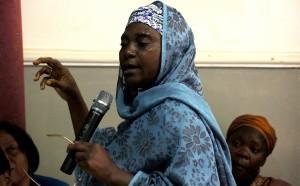
The Accelerating Contraceptive Choice (Nigeria ACC) meeting in Abuja last month resulted in the development of actionable, evidence-based advocacy strategies for family planning to be implemented at subnational levels in Nigeria.
The two-day meeting (January 20-21, 2015) organized by Advance Family Planning partners Pathfinder Nigeria and Planned Parenthood Federation of Nigeria convened government leaders, family planning experts, civil society representatives, and researchers from both national and subnational levels of six key states and the capital: Lagos, Kaduna, Kwara, Gombe, Kebbi, Oyo, and Abuja – Federal Capital Territory.
The meeting identified promising opportunities for scaling-up quality family planning programs to increase access to voluntary family planning services and commodities in Nigeria. Key champions from each of the seven state working groups identified specific, time-bound advocacy objectives to address family planning priorities both at the state and local government agency levels. Objectives included funding for family planning and operationalizing policies such as the task-shifting policy allowing community health workers to provide contraceptive injectables and implants.
In addition, Futures Group International introduced a new model called ImpactNow, which quantifies the economic and health benefits of family planning at a state level. Performance Monitoring and Accountability 2020 (PMA2020) also presented data on key family planning indicators from two recent surveys they completed in Kaduna and Lagos.
As planned, the Nigeria ACC meeting built on momentum made at the recent 3rd Nigeria Family Planning Conference in November 2014, which launched three key national reproductive health policy documents: the Nigeria Family Planning Blue Print; the National Long Acting Reversible Contraceptive Strategy; and the Global Programme to Enhance Reproductive Health Commodity Security Survey Report.

